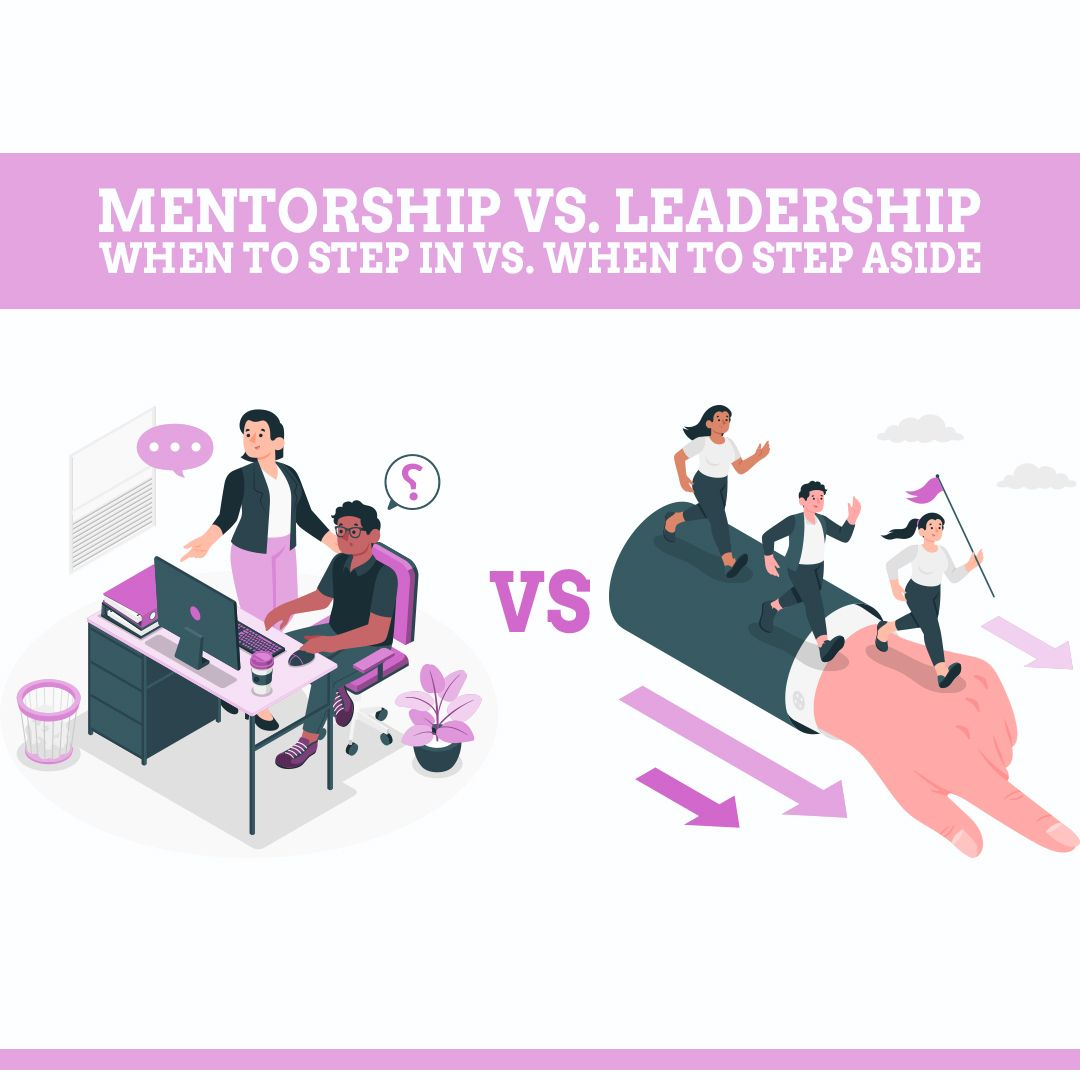Strong leaders are often great mentors, but that doesn’t mean the two roles are synonymous. Leadership and mentoring share overlapping qualities, but understanding their unique purposes and how they interact can make or break your impact on those you lead.
So, how do you know when to step into the role of mentor vs. when your team member might benefit more from someone else’s mentorship?
Leadership and Mentoring: Overlapping, Not Identical
At its core, leadership is about influence, direction, and responsibility. Leaders guide teams toward goals, set the tone, and hold people accountable. But leadership worth following goes beyond authority; it involves teaching.
Teaching, however, comes in many forms. It can be:
- Training in a group setting
- Demonstrating tasks or workflows
- Coaching for performance improvement
- Or, more personally, mentoring
Mentorship is a closer, more intimate form of leadership. It’s one-on-one. It’s based on mutual trust, vulnerability, and personal development. Mentoring isn’t just about building someone else’s potential; it’s also a path for your own growth.
The Power of Rapport: The Foundation of Mentorship
If you’re considering mentoring someone on your team, ask yourself: Is there a strong fit between us?
That “fit” is known as rapport, a term often used in counseling that refers to trust, empathy, and psychological safety. Research going back to the 1960s shows that rapport is more important than the specific tools or techniques used in therapy. The same can be said of mentorship.
For a mentor-mentee relationship to work, you need to offer:
- Genuineness – Be your authentic self
- Empathy – Understand their struggles without judgment
- Unconditional Positive Regard – Accept them fully, strengths and flaws alike
If you can’t bring those to the table, whether due to a past conflict, personal bias, or simply a mismatch, it may be best to refer them to another mentor.
When You’re Not the Right Mentor
Here’s a hard truth: just because you’re the team leader doesn’t mean you’re the right person to mentor everyone under you.
If you find yourself repeatedly annoyed, frustrated, or disconnected from a particular team member, that doesn’t always mean there’s something wrong with them. It could be a reflection of your own blind spots.
In those moments, flip the script:
Become the mentee.
Seek out a mentor for yourself. Ask, “Why is this relationship so challenging for me?” Often, working through your own internal resistance will either:
- Help you grow enough to become a better mentor
- Or clarify that someone else can better serve this person’s needs
When You Are the Right Mentor
If you can offer empathy, genuineness, and acceptance, even when challenges arise, lean into the opportunity. Mentorship is one of the most powerful tools a leader can offer. It’s how you:
- Develop talent
- Build trust
- Shape the future of your team
- Grow as a leader yourself
Remember: teaching isn’t just about transferring knowledge; it’s about transformation, for both people involved.
Final Thought: Mentorship Is a Leadership Skill, But It’s Not Always Your Role
Mentorship is a powerful leadership practice, but it requires deep relational skill and emotional availability. It’s not something to force, but rather something to step into when the fit is right. Great leaders don’t mentor everyone, but they make sure everyone gets mentored. Because becoming a leader worth following means knowing when to lead, when to teach, and when to support from the sidelines.



